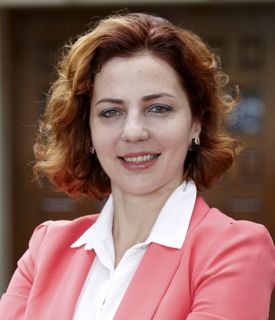Research grant to support study of amicus briefs
February 14, 2014
 Western Law professor Anna Dolidze has been awarded a $15,850 Seed Grant from Western’s Social Sciences and Humanities Research Board to study the role and influence of Amicus Curiae briefs at international tribunals.
Western Law professor Anna Dolidze has been awarded a $15,850 Seed Grant from Western’s Social Sciences and Humanities Research Board to study the role and influence of Amicus Curiae briefs at international tribunals.
Dolidze was one of only ten faculty at Western University to receive an award in this semi-annual competition.
“For a junior scholar this kind of support is very important because it strengthens my capacity and shows that the university finds this work valuable,” says Dolidze.
“Amicus curiae, or friend of the court intervention, has become an important tool for interest groups for taking part in international dispute resolution proceedings and for potentially influencing international law making,” argues Dolidze.
Interest groups, such as the Foreign Trade Association, Consumer Industries Trade Action Coalition and Greenpeace, routinely submit amicus curiae briefs before international tribunals.
In the recent “Seal” case in which the World Trade Organization panel upheld the European Union’s ban on the importation of seal products from Canada, twenty three amicus curiae briefs were submitted, including briefs by the Bridge Bardot Foundation and by the actor Jude Law on behalf of the People for Ethical Treatment of Animals (PETA) UK.
“I hope I can identify patterns and gauge civil society organizations influence in order to understand the role these organizations play in the development of international law,” she notes.
Dolidze says this phenomenon has been largely overlooked in both international relations and international law scholarship.
At this stage, Dolidze will create a pilot study of amicus curiae participation in two international tribunals, the World Trade Organization and the Inter-American Court of Human Rights.
“Western Law is very proud of Professor Dolidze’s innovative work on amicus briefs,” says Assoc. Dean Erika Chamberlain. “It will provide crucial insight regarding the impact of interest groups on the decisions of international tribunals, and will develop a framework for legal scholars to apply in the future.”






